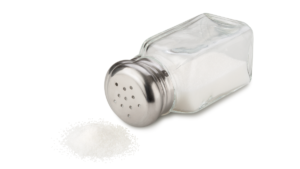Feel Good Fitness: The Benefits of Exercise
Exercise is an important part of a balanced lifestyle; it enhances our physical and emotional wellbeing. Finding consistent ways to move our bodies can have a positive impact on weight management, cardiovascular health, and immune function. It can also relieve stress and improve our mood and cognitive function. The benefits of exercise can be enhanced by incorporating good nutrition, which can also help to fuel our bodies for workouts and aid in recovery. Finding ways to move your body that is enjoyable is a key part of a sustainable workout routine. Exercise should be fun and energizing, rather than feeling like a task. Keep reading to learn more about exercise and how you can start enjoying the benefits!
What is Considered Exercise?
Exercise is defined as any physical activity that enhances or maintains physical fitness, overall health, and well-being. There are many different forms of exercise, the main ones being aerobic exercise and strength training. Other forms include flexibility, functional training, and high intensity interval training. Aerobic exercise increases heart rate and improves the physical fitness of our heart. Aerobic exercises can be any activity that increases your heart rate, including running, swimming, cycling, and dancing. Strength training focuses on building muscle strength and endurance. It’s important because it builds and maintains muscle mass, enhances bone density, and improves functional fitness, which makes everyday movements easier. Aerobic exercise recommendations are 150 minutes of moderate-intensity or 75 minutes of vigorous-intensity exercise per week. It’s recommended to incorporate 2 days of strength training per week. Physical activity recommendations vary among individuals depending on overall health and wellbeing. If you have any underlying health conditions and are not used to exercising, consult your doctor to find a workout schedule that works best for you.
The Physical Benefits of Exercise
Consistent exercise has a variety of benefits on our overall physical health. Exercise is a key component in maintaining a healthy weight. It also improves cardiovascular health by strengthening the heart and improving circulation, which can lower blood pressure, reduce the risk of heart disease and stroke, and improve symptoms of heart disease and other chronic illnesses. Other benefits to staying active include decreased risk of osteoporosis, improved sleep quality, boosted immune function, and increased energy levels throughout the day.
The Mental Benefits of Exercise
The benefits to exercise don’t stop at physical wellbeing, it is also beneficial to our overall mental health. When we exercise, our body releases endorphins, which naturally boost our mood, helping to relieve stress and reduce anxiety. Physical activity can also have a positive effect on overall cognitive function, improving memory and focus. When we are consistent with exercise goals it can also increase self-esteem and emotional well-being. Exercising in a group setting can be a great way to socialize and connect with other like-minded people!
Nutrition and Exercise
Incorporating balanced nutrition habits, along with your exercise routine, can enhance both the physical and mental benefits. Nutrition is also important for fueling our bodies for exercise and the recovery process. Staying hydrated during workouts and throughout the day prevents dehydration. This also helps to promote optimal performance and enhance recovery. Having balanced meals and snacks that incorporate carbohydrates, protein, and healthy fats before and after workouts can also aid in performance and recovery. Avoid high fat foods before workouts as they can cause heartburn and indigestion. Try to choose protein rich foods after workouts to support muscle recovery. For more information on nutrition and exercise, schedule a consultation with us!
Overcoming Barriers
The benefits of exercise are maximized when it’s performed consistently. To do so, it’s important to find ways to stay active that are enjoyable to you and fit into your schedule. People may face other barriers when incorporating exercise into their routine, such as finding motivation, accessing facilities, physical limitations, and weather conditions. These barriers can be overcome with planning and determination! Exercise can be anything that you enjoy, this includes walking, running, dancing, or playing sports. To overcome time barriers, try scheduling workout times at the beginning of the week to fit them into your schedule. If your ability to access facilities is limited, try going for a walk or run or pulling up a workout video on YouTube to try in your living room! If physical limitations prevent you from exercising, you can perform seated exercises. For more guidance or help overcoming barriers to incorporating exercise into your routine, schedule a consultation!
 Find What Works for You
Find What Works for You
Exercise has many benefits, both physically and mentally. To fully reap these benefits, it’s important to have an exercise routine that works best for you. This means having a routine that you enjoy and that fits your lifestyle. Remember to start small and increase your workouts as you go to avoid injury and promote consistency. Celebrate workout victories and congratulate yourself for progress that you make. If or when you have setbacks, learn from those experiences and make adjustments. Everyone’s exercise journey is different, so be kind to yourself and be proud of your individual successes!
For guidance on nutrition and exercise, contact us to set up a consultation!
Jalpa Sheth Nutrition & Wellness, LLC is a nutrition based private practice serving NY, NJ and coming soon FL. Our board certified registered dietitians can be instrumental in helping you attain optimized nutrition to help achieve your goals around health, fitness, sports, and/or mere weight management.
Related Articles:
- Breaking the YoYo Diet Cycle: Two Transformative Tips for a Wholesome Lifestyle!
- Calories Counting: Looking Beyond Number
- Stress is Causing Your Bad Eating Habits! 7 Tips for Managing Both
- Nutrition FAQs







 Watching sodium intake is essential nutrition hack for men’s heart health, as excessive sodium consumption can contribute to high blood pressure and increase the risk of heart disease. Here are some practical tips to help Dad monitor and reduce his sodium intake:
Watching sodium intake is essential nutrition hack for men’s heart health, as excessive sodium consumption can contribute to high blood pressure and increase the risk of heart disease. Here are some practical tips to help Dad monitor and reduce his sodium intake:

 While the supplement industry is regulated to some extent, it’s essential to approach product claims with a critical eye. Not all supplements are created equal, and some may contain contaminants, inaccurate labeling, or ineffective ingredients. To ensure reliability:
While the supplement industry is regulated to some extent, it’s essential to approach product claims with a critical eye. Not all supplements are created equal, and some may contain contaminants, inaccurate labeling, or ineffective ingredients. To ensure reliability:





 3. Controlling Diabetes through Diet
3. Controlling Diabetes through Diet 3. Weight Management and Exercise
3. Weight Management and Exercise


 The Power of Exercise Routine
The Power of Exercise Routine
 Sleep is something that we can all easily set aside for more “important” things. The famous saying, “I can sleep when I’m dead” is a good example of how little we value sleep. Whether you’re a mom of littles or a successful entrepreneur, we stay busy! We run on fumes and caffeine to get things done. It’s almost a badge of honor to push through, stay busy, and work more than sleep. However, we are sacrificing sleep to the detriment of our health and wellness. Let’s learn about the importance of sleep in this blog.
Sleep is something that we can all easily set aside for more “important” things. The famous saying, “I can sleep when I’m dead” is a good example of how little we value sleep. Whether you’re a mom of littles or a successful entrepreneur, we stay busy! We run on fumes and caffeine to get things done. It’s almost a badge of honor to push through, stay busy, and work more than sleep. However, we are sacrificing sleep to the detriment of our health and wellness. Let’s learn about the importance of sleep in this blog.





